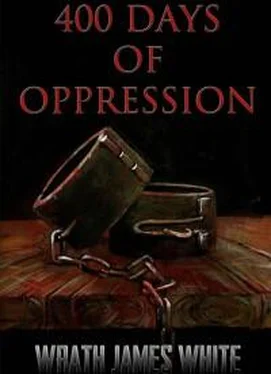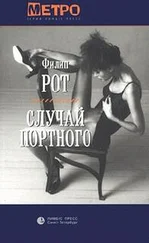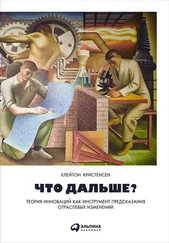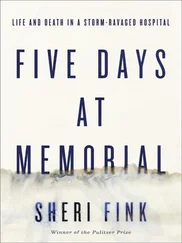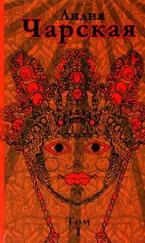I wasn’t allowed to look at my face in the mirror until the tattoo had properly cured. I imagined that Kenyatta was afraid I would quit and wash it all off before it could set up. When it was finally ready, I could tell from the expression on Angela’s face, eyes wide, brow furrowed, lips pulled back away from her teeth in a grim rictus, that Kenyatta had done something awful to me. He led me to the bathroom and watched as I got my first glimpse of the abomination she’d drawn on my face. It was all I could do to keep from screaming.
“No. No! What the hell did you do to me?”
On my forehead, cheeks, chin, nose, beneath my eyes, even my eyelids, were flowers, paisleys, leaves and various lines and squiggles forming geometrical patterns in a dark rusty red. But what made me want to scream was what I saw in those patterns, in the lines and squiggles...words. They weren’t immediately apparent, hidden in the highly stylized calligraphy, amidst the floral patterns and designs, hateful, despicable words. “Lazy.” “Stupid.” “Violent.” “Thief.” “Slut.” “Liar.” “Criminal.” “Drug Dealer.” “Gang Banger.” “Addict.” The closer I looked, the clearer and more prominent the words became. I had been labeled with every negative stereotype with which society had labeled black Americans. It stained my skin like the mark of Cain and it would remain there for weeks.
“The first thing black children all over America, for almost four centuries, learned was to hate their own skin, their own faces. That is part of the experience. Your disgust when you look in the mirror, seeing that you don’t look anything like the beautiful people on TV, that’s part of it. The other part will be the suspicion, hatred, disgust, and distrust others will show you because of your skin. That’s how you’ll really know what it’s like.”
Kenyatta paid the Indian woman and showed her to the door. Then he showed me to the door as well.
“I’ll give you twenty-four hours to find a job and an apartment. Then you’ve got to go.”
He shoved me gently onto the porch, kissed my forehead, rubbed, squeezed, then smacked my ample buttocks, and slammed the door behind me. I stood there on the porch, weeping for moments that felt like hours, before taking a deep breath and once again wiping the tears from my eyes. I had to at least try.
Catching a taxi was my first difficulty. I walked to the nearest convenience store, eyes from passing pedestrians followed me. Children giggled and pointed. An old white lady in a red motorized scooter sneered at me in disgust and shook her head. I felt thoroughly wretched. This was worse than the box in the basement.
The teenaged convenience store clerk looked up from his computer gamer magazine long enough to glare at me, smirk, tsk, and shake his head, before immediately reaching for his smartphone, presumably to text his buddies about the tattooed freak who’d just walked into his store. Ironic and a bit hypocritical of him considering the sleeve of dragons, zombies, and sexy devil chicks that ran up his left arm. But, of course, there were fathoms between the sort of antisocial behavior that led one to tattoo a devil in a black bikini riding a Chinese dragon on their arm and the type of insanity that led a woman to allow a man to tattoo insults all over her face.
“Hi...uh...do you know the best place around here to catch a cab?”
“Cool tattoo.”
I blushed and looked away, not certain if he was fucking with me or not.
“Uh...thanks...um...”
“Taxi, right? They drive by occasionally, but you’d have better luck calling one. I’ll call one for you.”
He took out his smartphone, removed a yellow business card from somewhere behind the counter, and quickly dialed the number. I looked around the store at the rows of unhealthy snacks: chips, candies, packaged cupcakes and cookies, so-called energy and “nutrition” bars, all packed with enough preservatives to ensure they’d endure a generation. Juxtaposed with stationary, paper goods, toiletries, a few odd supermarket items like bread, cake mix, pet food, soup, beans, ravioli and other canned goods. Another aisle contained automotive supplies, aspirin, allergy and sinus medications and various other pharmaceuticals. It had never occurred to me before how weird convenience stores were.
“They said they’ll be here in twenty minutes,” the kid behind the counter said.
“Thanks.”
Twenty minutes. That meant I’d be stuck here with nothing to do but wander the aisles and wait for the next person to come in and gawk at me. It didn’t take long for the first customers to arrive. A group of Filipino teenagers with their pants sagging down below their waists so their multicolored boxers were visible, wearing 49ers jerseys, walked in. They wore practiced sneers of contempt that became genuine only when they looked at me. One of them laughed. I was mortified.
“Check out the tattooed chick,” one of them whispered.
“That’s crazy, yo!”
I left the store snatching a free weekly newspaper off a stand by the front door on my way out. This time I shielded my face as I walked. My embarrassment was etched into my skin deeper than the tattoo ink. I walked to the corner and sat down on a bench, trying to read the classified ads through a veil of tears.
There were ads for teachers, tutors, nannies, all jobs I would have been qualified for, but imagining myself walking into an interview with “Slut,” “Thief,” “Addict,” and “Drug Dealer” tattooed on my face made me skip those jobs. As I circled a cocktail waitress job and prepared to call, I wondered if black people did the same thing, skipping jobs they were qualified for out of fear of rejection. Then I reconsidered. I picked the highest paying job listed, an English teacher at a private girls’ school, and used my smartphone to email them my resume. I sent it to seven other places, including a couple in Berkeley advertising for a live-in nanny. That would’ve solved both of my most immediate problems: money and shelter. I decided to give them a call. I took a deep breath, wiped the last remnants of tears from my eyes, and dialed the number.
“Hello?” said a woman with a raspy voice as if she’d been smoking a pack-a-day since birth and chasing it with moonshine.
“Hi, My name is Natasha Talusa. I’m calling about your ad for a live-in nanny. Is the position still available?”
“Yes. Yes. We are conducting interviews today. What time can you come by?”
“I’ll be coming on BART so it will take me at least an hour.”
“Okay. That’s fine. I don’t have any other appointments today. Hopefully you’ll be the fit we’re looking for. Do you have any experience?”
“I taught seventh grade English for five years, and I have a degree in childhood education.”
“Sounds good. I can’t wait to meet you.”
I allowed myself to be hopeful as I rode the BART across the bay into Oakland and all the way to Berkeley. I ignored the stares and snickers and instead concentrated on what I would say to my prospective employer. I’d have to be damned charming to make up for my appearance.
The BART train was crowded, as usual. This allowed me to hide among the crush of humanity. The scowls of disgust were limited to those in my immediate vicinity, but the more the crowd thinned as we headed into Berkeley, the more those scowls multiplied, shaking my nerves and causing me to question my resolve. Perhaps I should have stuck to cocktail waitress jobs or maybe even a truck stop waitress.
“Who would write ‘slut’ or their forehead? That’s what it says isn’t it?” said a college student of mixed heritage. One of those unusual combinations of race that only Berkeley produced; black, Samoan, Filipino, and Irish or something similar. He had cinnamon colored skin, slanted hazel eyes, a wide nose, thick lips, and a thick wooly Afro. His friends, three of whom shared his exotic features, but were probably not related, all snickered. One pointed at me. I moved into the next car with them laughing at my back as I exited. I wiped tears from my eyes. This was probably the most liberal city in America. If I was getting ridiculed here, there was little hope for me.
Читать дальше
